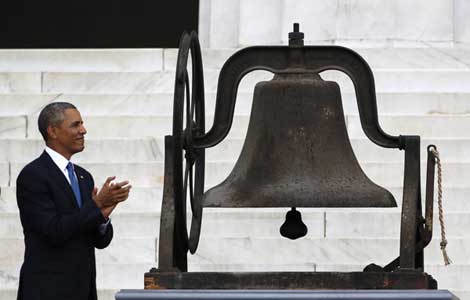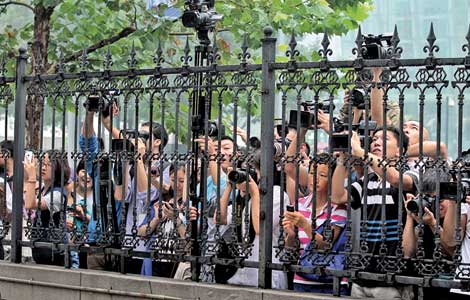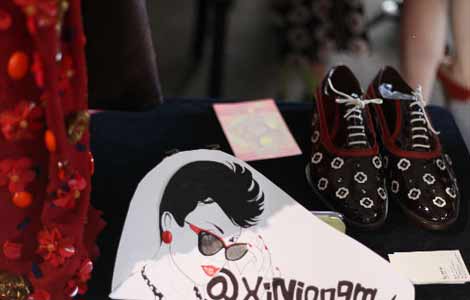Crime and punishment for corrupt officials
Updated: 2013-08-29 08:14
By Ji Zhebu in Beijing (China Daily)
|
||||||||
'A major political task'
Professor Hu said China lacks an effective system to prevent corruption. He suggested that the government should establish a system under which public officials are forced to disclose their personal assets and financial dealings and administration are more transparent. Moreover, officials should be subject to greater media scrutiny.
The Politburo of the CPC Central Committee said on Tuesday that building an anti-corruption system is "a major political task" and the responsibility of every member of Chinese society. In a statement released after its Tuesday meeting, the Politburo vowed to reform the CPC discipline inspection system. It also pledged to update the anti-corruption mechanism and improve the CPC's supervision and inspection systems at all levels, according to Xinhua News Agency.
The abuse of power by officials must be checked and greater supervision should be employed to create a system in which officials dare not be corrupt and the opportunities for corruption are limited, it said.
"Prison staff write the recommendations for the reduction of sentences based on prisoners' behavior. The court then makes a final decision based on that material. But it's hard to avoid favoritism, and it would be better if the process were to be carried out publicly to reduce the chances of favoritism," said Zhao, the law firm director.
Li Fenfei, associate professor at the Law School at Renmin University of China, was quoted by Oriental Outlook as suggesting that representatives from the prosecution, victims and their relatives, the prisoner and local communities should play a part in the sentence-reduction procedure. He also said victims should be able to appeal what they believe to be unduly lenient reductions to reassure the public that the process is just.
Xu Xin, professor at the School of Law of the Beijing Institute of Technology, suggested that the courts should make information about trials and sentences available to the public, and the public and the media should be allowed to attend trials.
"Bo Xilai's case set an example of how to make information about highly sensitive trials involving influential individuals available to the public. Hopefully, it will become a model for future cases, and the judges' actions will be open to the public gaze," said Xu.
Xu said he hopes the Supreme People's Court will release more "guidance" cases to courts at all levels as reference material. He also called for the courts - especially the Supreme People's Court - to make all deliberations about sentencing public, so the plaintiff, the defendant, lawyers and the public can compare sentences in similar cases to see if there are huge discrepancies.

 US vows action in Syria even without UN backing
US vows action in Syria even without UN backing
 Li Na advances to 3rd round
Li Na advances to 3rd round
 Obama, marchers mark 50 yrs since King's speech
Obama, marchers mark 50 yrs since King's speech
 Singers' son pleads not guilty
Singers' son pleads not guilty
 Rubber duck to float in Beijing
Rubber duck to float in Beijing
 New York Times, Twitter hacked by Syrian group
New York Times, Twitter hacked by Syrian group
 Five apps to help you 'breathe' in Beijing
Five apps to help you 'breathe' in Beijing
 Wozniacki survives battle with Chinese qualifier
Wozniacki survives battle with Chinese qualifier
Most Viewed
Editor's Picks

|

|

|

|

|

|
Today's Top News
China, US officials discuss defense ties
Envoy to seek release of US citizen
China leads the way on multilateral defense co-op
Bond trial program set to expand
China set to lead e-commerce market
US vows action in Syria
Firms 'must foster' jobs abroad
5-yr work plan to fight graft unveiled
US Weekly

|

|







